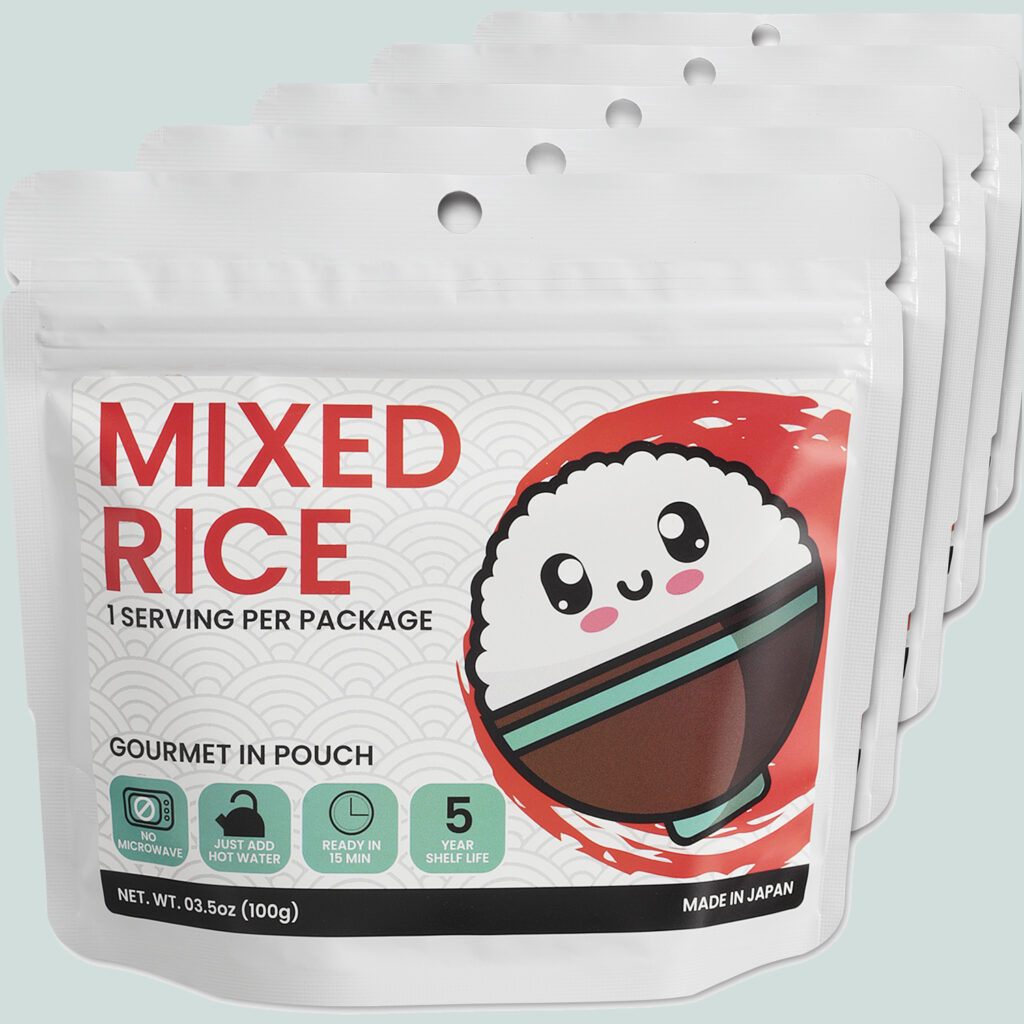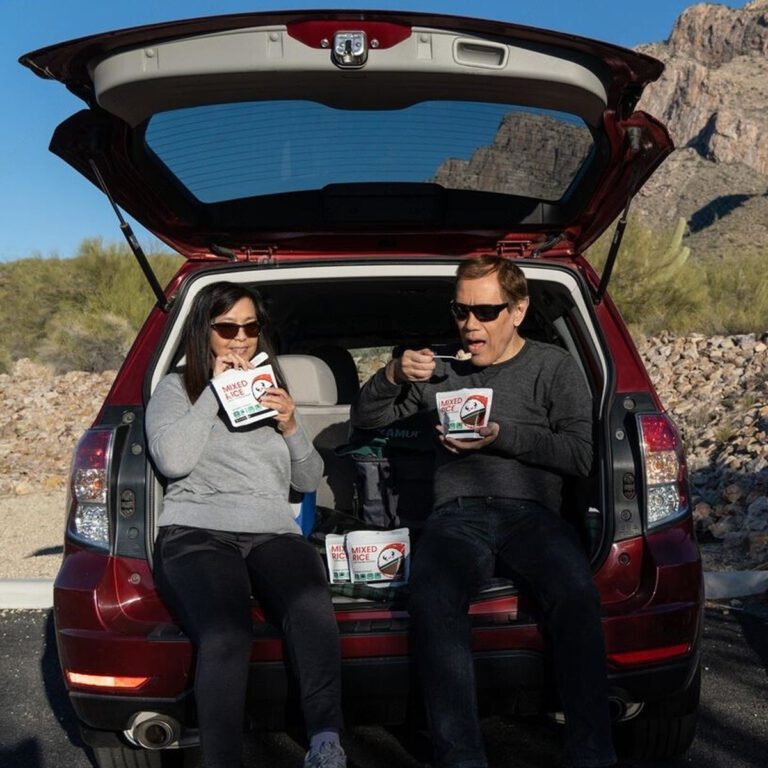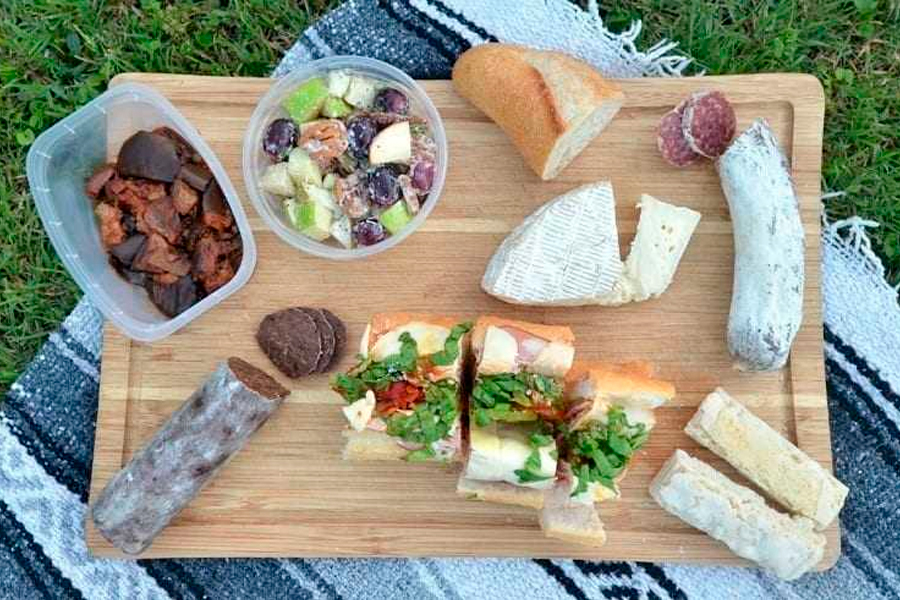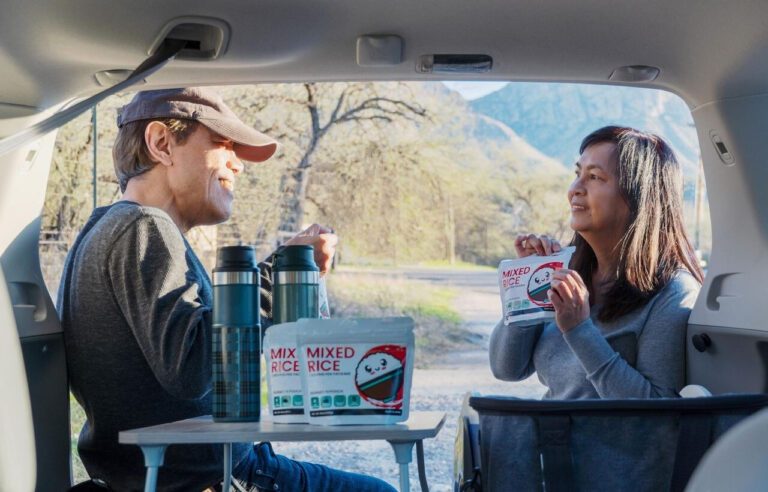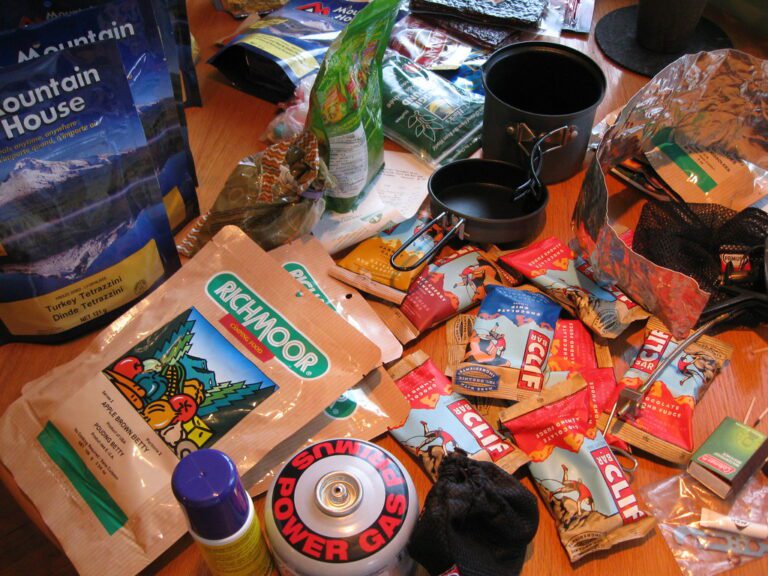Phone
+1-650-666-095
Contact E-mail
[email protected]
Address
16192 Coastal Hwy, Lewes, DE 19958-3608
Light Food For Backpacking: 10 Ideas You Need To Try
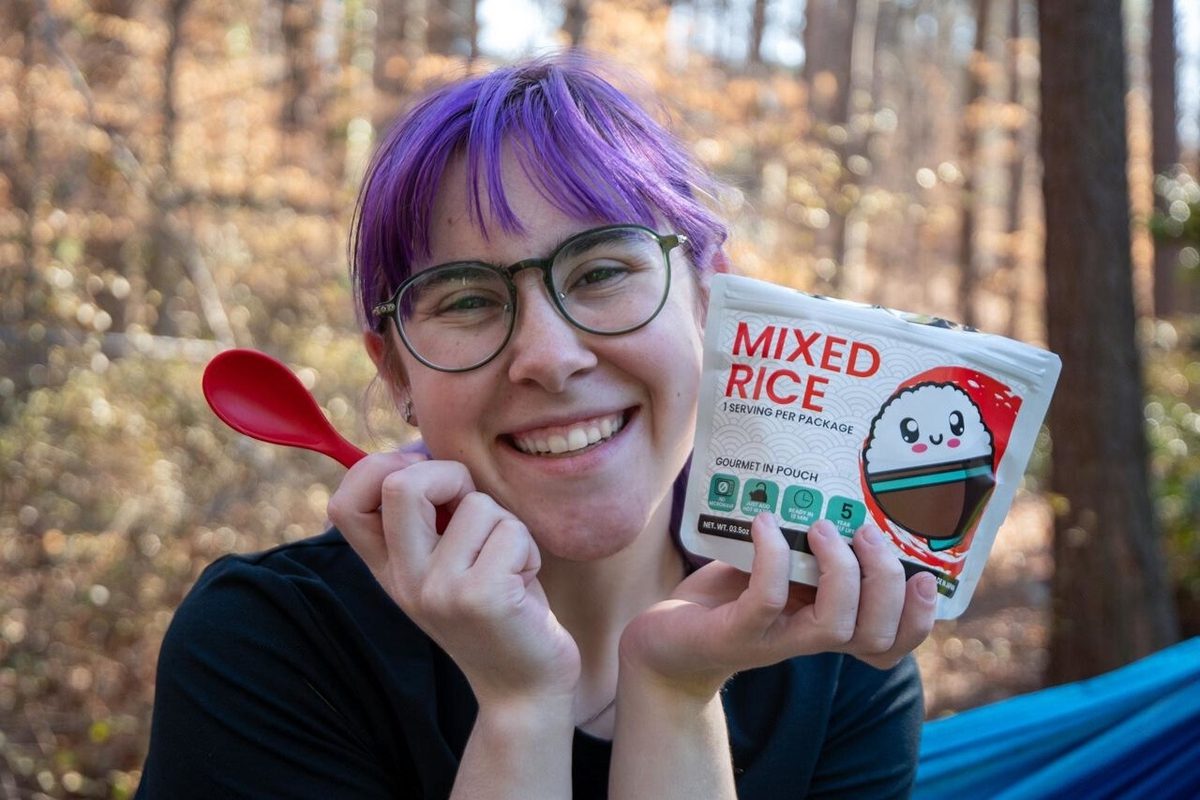

It doesn’t matter if you are a thru-hiker, long-distance hiker, or just a weekend backpacker, all of us are looking for some light food for backpacking because our backpacks can get heavy. If you’re looking for an ultralight option when it comes to food, this article is for you. And don’t worry, protein bars, gels, and powders are not the only things you need to eat when backpacking to keep your base weight minimal.
Backpacking Food: All The Facts You Needed To Know
Backpacking food is as important as the gear you bring with you; therefore, your food and your gear are almost the same thing. Remember, without proper nutrition, you won’t be able to reach your goals.
All you need is some basic planning and preparation knowledge to get you some tasty and truly nutritious foods that are both light and high in Calories but, most importantly, taste great out in the wild. Many ideas for backpacking meals will overlap with other camping recipes, but not all of them will be as light as you need them to be. If you want to go lighter, you will need to look for foods that are easy to cook, require zero cleanup, and have a lot of Calories in them. That is the best option when it comes to light food for backpacking.


Importance of Light Food for Backpacking
But why is it important to bring light food with you while backpacking? The logic is easy to understand. If you pack lighter food, you will have a lighter backpack, and therefore, it will be much easier for you to bring your food with you wherever you might go on your backpacking trip.
Make sure you know whether or not you or any of your backpacking buddies have any dietary restrictions or allergies and what kind of gear you have with you. Also, keep in mind the weather conditions, caloric needs, and wildlife activity in the area you plan on hiking in. These are all key elements in deciding which type of food to bring.


How Much Food Should I Take for Backpacking?
This is an important question because it not only tells you how to save weight in your backpack but also how many Calories or nutrition you put into your body while exerting yourself on a very long trip. The first thing you need to know is that most backpackers believe that each person will need 2,500 to 3,500 Calories per person per day.
In fact, there is a mathematical model which will help you calculate how much food you need per mile. It takes into consideration the terrain, mileage, and weight carried in your pack.
With that being said, there is the energy mile theory, which many backpackers have heard of but don’t know much about. In fact, it is defined as one energy mile, having the energy required to walk one mile on flat terrain. The energy miles increase with each thousand feet of elevation gain, making backpacking a high-energy mile sport and requiring each person to eat around 90 Calories per energy mile.
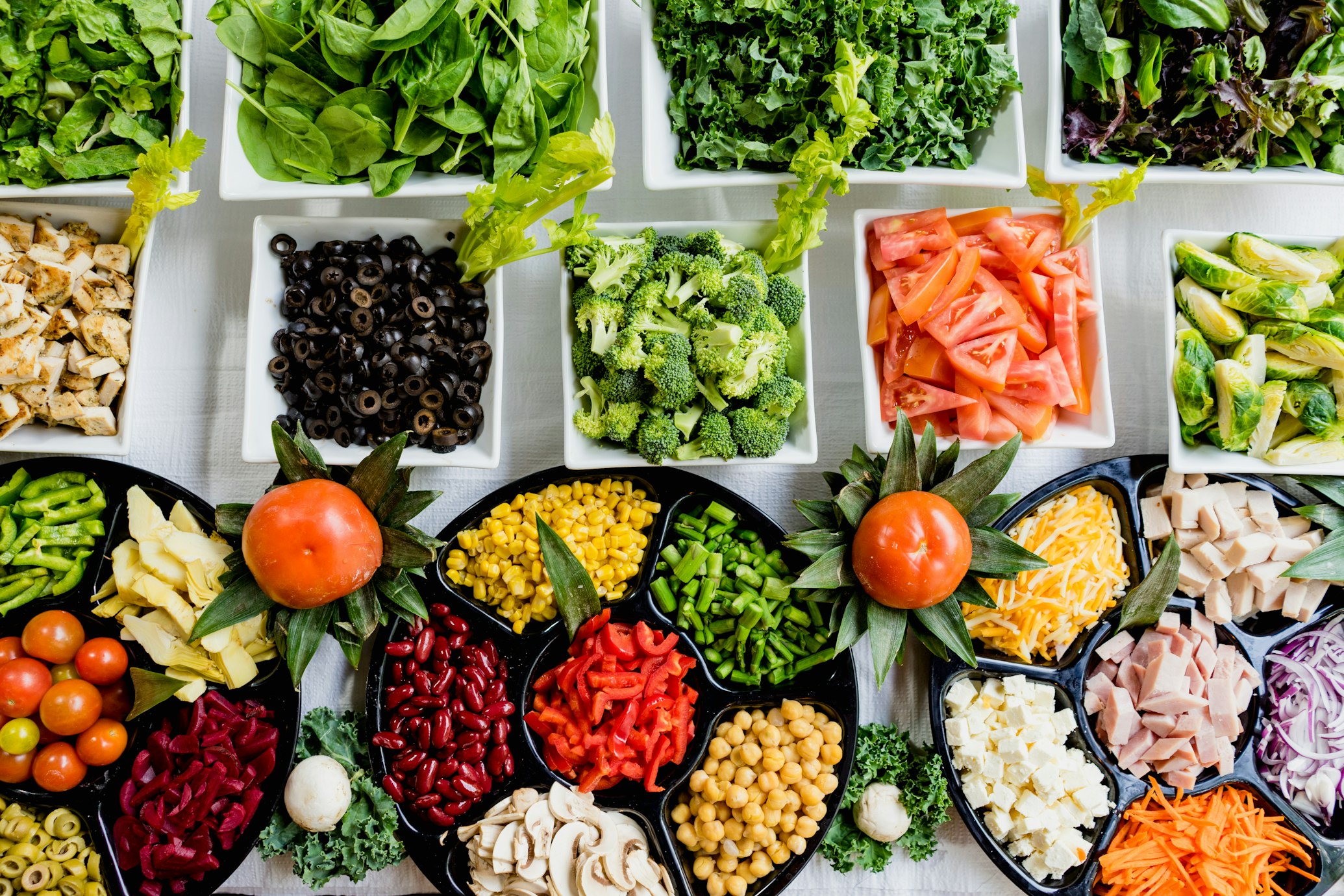
To leave the science behind, each person should eat at least as much food as they eat at home, plus extra, including breakfast, dinner, lunch, and at least two snacks during the day.
Nutritional Considerations for Backpacking
If you are hiking longer distances, it’s key to consider nutrition as well so your body doesn’t skim on all of the vitamins and nutrients it needs for normal functioning. You’ll want to stay fueled and keep your body happy on every trek. Therefore, to achieve optimum efficiency, you will need to have an intake of 50-60% carbs, 25-35% fats, and 10-15% protein. This is if you want to minimize weight loss. If weight loss is not a problem, you can minimize the fats. Another goal is to eat small and eat often, even every two hours, and not have only three meals during the day.
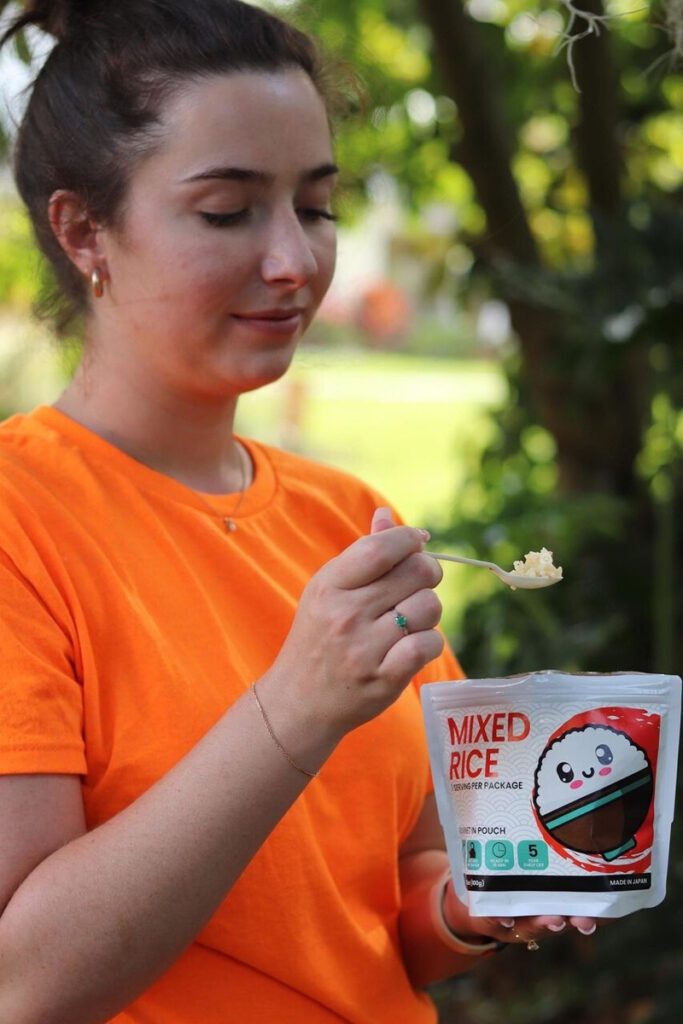

Protein
Proteins are key nutrients for our body, especially for longer exertion. Protein also helps build muscle, so it is a key factor to consider when planning your hiking nutrition menu. On longer runs, it’s key to have enough protein to help your muscles.
Carbs
Carbs are our body’s primary energy source while hiking, and truly, our body prefers them because they are easy to digest and process much more than protein and fats. They will not upset your stomach. If you don’t consume enough carbs, your body will burn muscle and store body fat, which is definitely not something we would like.
Fats
Fats make hormones and nerves. The body uses them as fuel, just like carbs. Fats can be minimized when hiking, especially if the trip is shorter.


Top 10 Light Backpacking Meal Ideas
Now that we have covered all the things we need to keep in mind when planning our backpacking menus, it is time to cover some basic light food for backpacking ideas and plan those backpacking meals once and for all.
1. Porridge
Porridge is a great option, especially if it comes in a pre-packaged bag. It’s ideal for backpacking because it is high in protein and Calories, providing essential nutrients and energy. Most importantly, it is easy to make.
2. Oatmeal
Another classic option is instant oatmeal. It’s easy to make and customizable. All you need to do is add hot water directly to the pack which can even be used as a bowl.

3. Nut Butters
Nut butters can be added to breakfast or as a snack on a tortilla or piece of bread. All kinds of butter, like peanut butter, are packed with Calories and protein.
4. Instant Coffee
Another way we add Calories to our backpacking menu is instant coffee, which already has powdered milk and sugar in it. As coffee itself doesn’t have any Calories, it is still an instant option that will give you Calories and an extra kick to start the day.


5. Jerky
Jerky of any kind is a great option. This even includes fruit leather, which can be made at home. All you need is a bit of experience and a dehydrator, and you can choose any type of meat you would like to use.
6. Trail Mix and Dried Fruits
We love trail mix because you can mix and match anything you like in it. You can even make your own out of nuts and dried fruits you like. Another cool option is just dried fruits as a snack, which can be made quickly in a dehydrator and weigh almost nothing.

7. Couscous
A good idea is also couscous, which can be bought in the store and packed into provisions. This carb-filled meal can be made by adding only hot water as well as some spices. It can be a main meal or a side dish, but what sets it apart is the almost zero weight.
8. Ramen
It doesn’t get more basic, light, cheap, or Calorie-dense. Add spices and oil, and you’ll have a full meal in only five minutes.

9. Dehydrated Meals
These are easy to pack in and out of the trail. They are extra light and offer enough Calories for you throughout the day. It doesn’t matter which brand you choose; ensure your daily nutritional requirements are met. You can choose the most common options, like mac and cheese, pasta, and risotto.
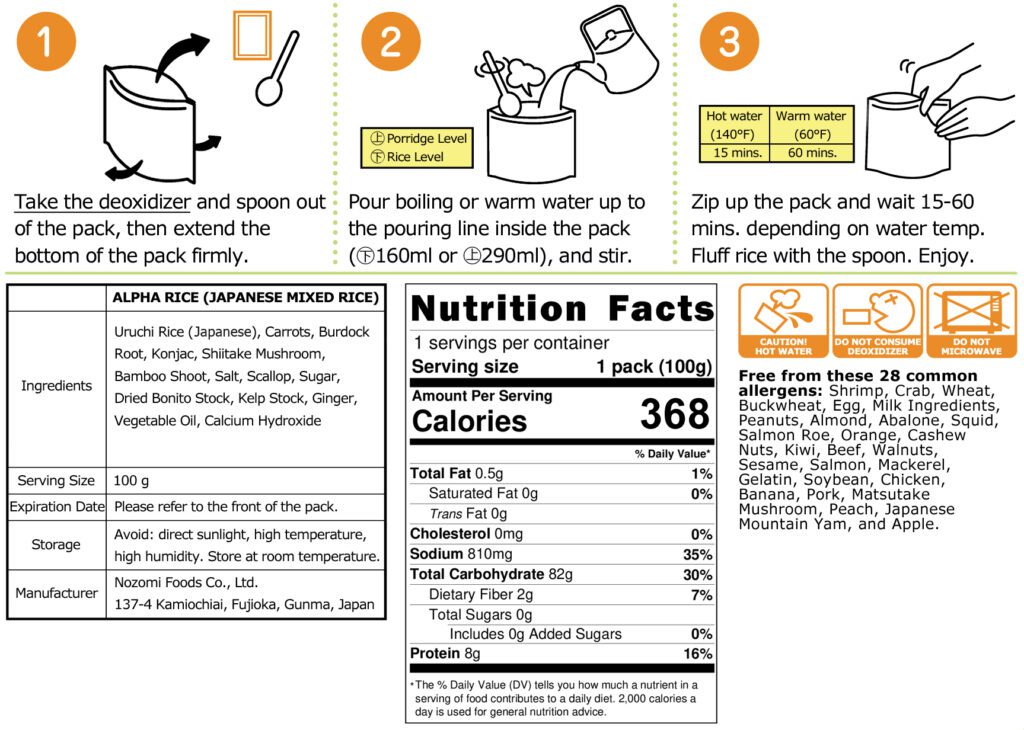

10. KAMUI Camping Food
Another thing we would like to recommend is our camping food: a freeze-dried and dehydrated gomoku rice mix. It can be eaten as a main meal or enjoyed with other dishes, and it is packed with the carbohydrates your body needs. This mix is perfect for camping, backpacking, and emergencies. Made from 100% Japanese rice, it is extra easy to prepare—simply add hot water, and it’s ready in 15 minutes.
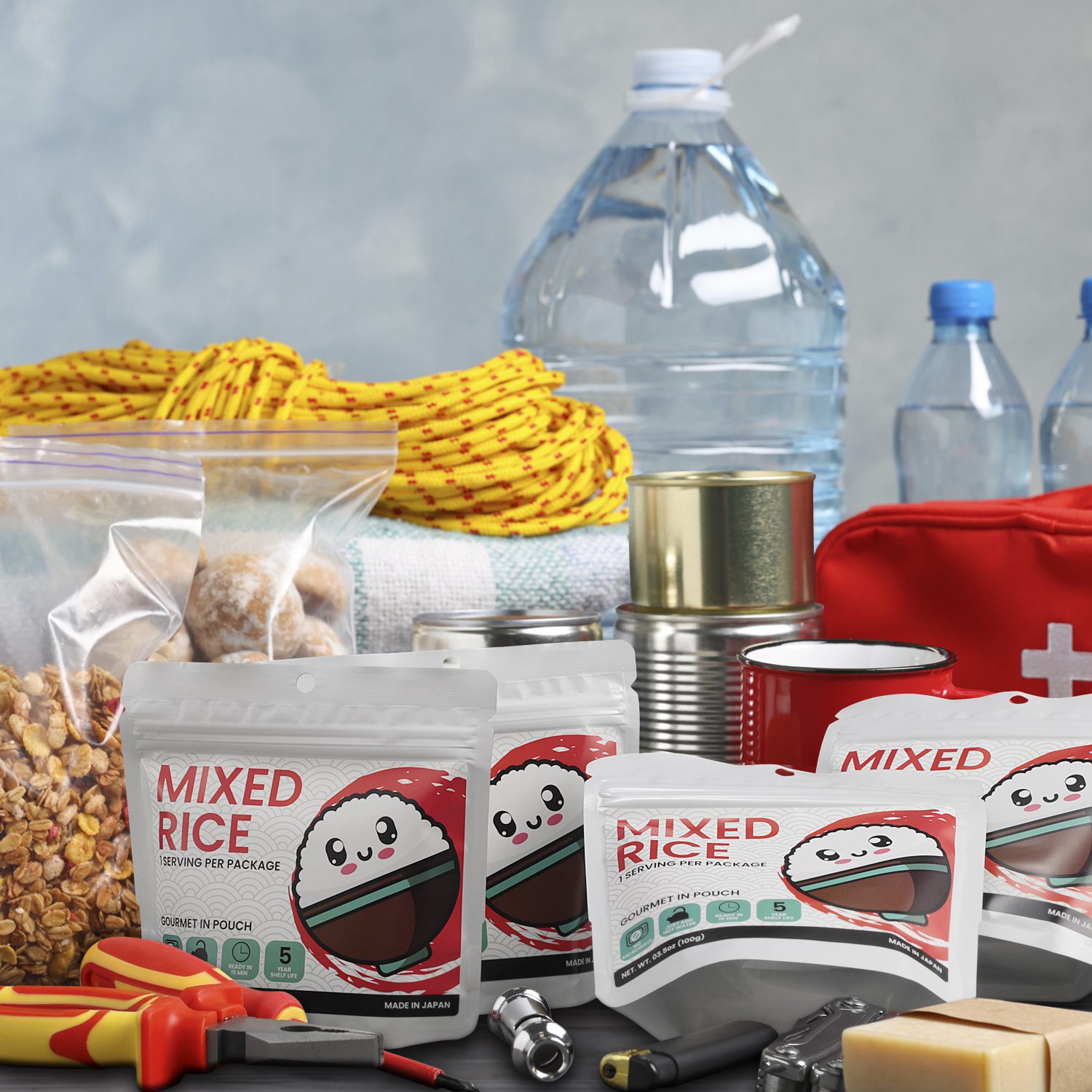

Conclusion
It’s time for you to get creative and assemble your own backpackers pantry full of dried meals, powdered milk, instant rice, and other trail food. You might become a total backcountry foodie, knowing the shelf life of each item you’ve prepared, understanding which perishable foods to avoid (like olive oil or almond butter), and having a whole meal plan prepped.
There is nothing easier than just adding boiling water to your instant oatmeal mix or dehydrated food. It’s not all just trail mix and backpacking gear, no! It’s about your freeze dried meal, Calorie density, and meal planning.
Be it cold water soaking, using fresh food, or adding a pinch of hot sauce, these easy backpacking meal ideas are full of breakfast, lunch and dinner recipes. Those were all our light food for backpacking ideas, which we hope helped you choose your own go-to options for backpacking.
- Made with 100% Japanese rice
- Authentic taste of Japanese cuisine
- Tasty freeze-dried meal
- Add hot water. Ready in 15 minutes
